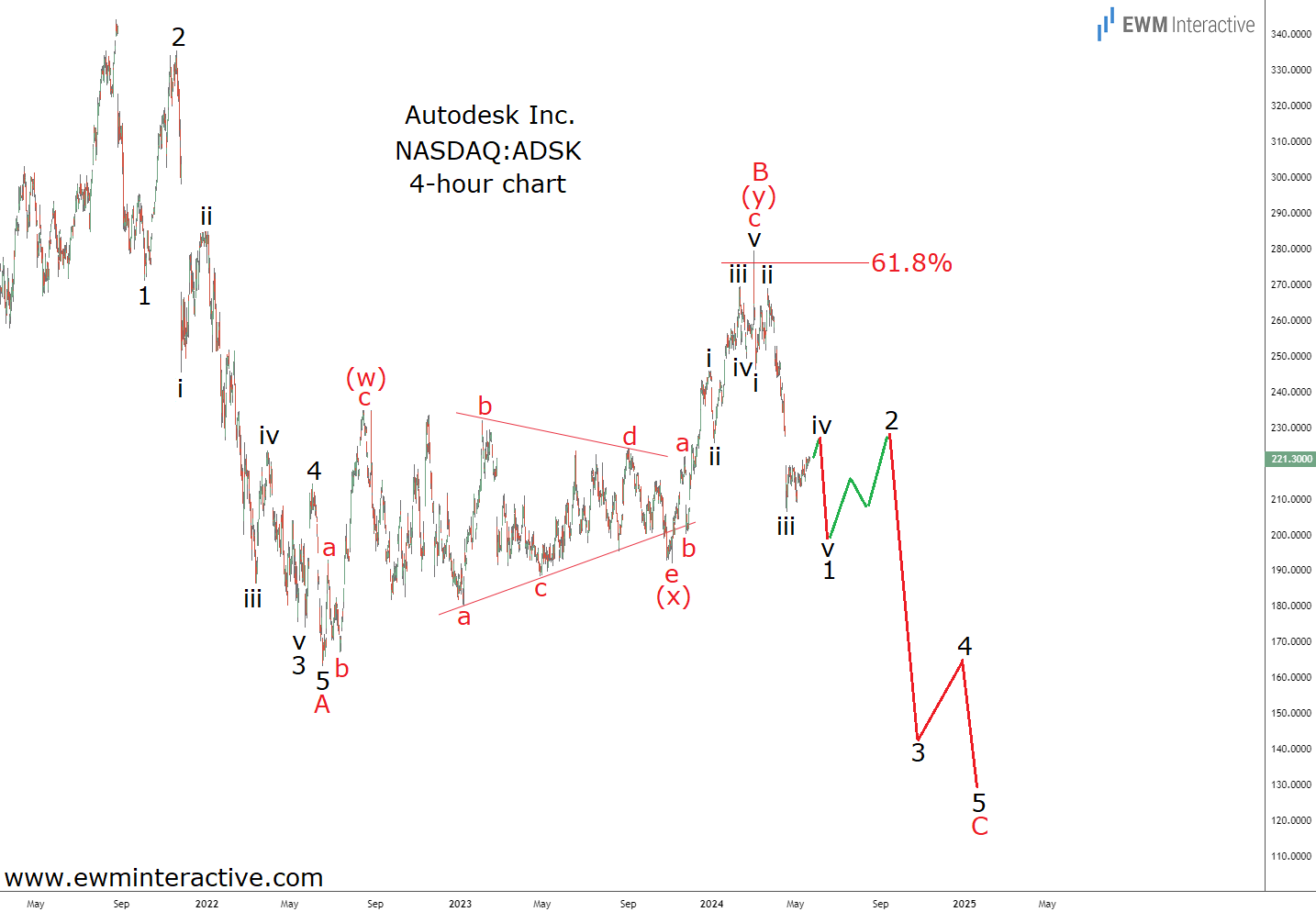Compared to the Magnificent Seven, Autodesk (NASDAQ:ADSK) looks like a small company with its market cap of less than $48B. But when it comes to architecture, engineering and structural design software, it is the global market leader. Generally speaking, its products help people, who make things – from shoes to airplanes. Even NASA’s Jet Propulsion Laboratory is collaborating with Autodesk for the design of a concept lander, which could one day search for life on the planets in the outer Solar system.
Given how exciting all that sounds, one might think that ADSK stock would be skyrocketing on all the hype. In reality, it has been significantly underperforming compared to the S&P 500 and trades near the same levels it did four years ago. More recently, the company delayed its fiscal 2024 annual report due to an internal investigation. It doesn’t expect any material changes to past results, but the market didn’t like the news anyway.
At just over $221 a share, Autodesk stock is down almost 36% from its August, 2021, peak at $344 and 21% from this March’s high at $280 a share. Let’s see if the Elliott Wave chart below can help us figure out if investors should buy the dip in this otherwise great company.
Long story short, they shouldn’t. The decline from $344 to $163 can be seen as a five-wave impulse pattern. We’ve marked it structure as 1-2-3-4-5 in wave A, where the five sub-waves of wave 3 are also visible. The theory states that a three-wave correction in the other direction follows every impulse. Here, wave B looks like a clear double zigzag, labeled (w)-(x)-(y). Waves (w) and (y) are simple a-b-c zigzags, while wave (x) is an a-b-c-d-e triangle.
It is interesting to notice that the end of the corrective recovery came shortly after it touched the 61.8% Fibonacci resistance level. If this count is correct, the recent drop from $280 a share must be part of wave C. Its initial targets lie below the bottom of wave A. Considering that the next major support area is near the Covid-19 lows of 2020, it makes sense to expect a decline to about $130. From the current price, that’ll be another 40% selloff.
Impossible? Not really. Despite its numerous competitive advantages, Autodesk’s revenue growth is in the low-double digits. Meanwhile, the company makes about $1.5B in free cash flow per year, meaning that the stock is trading at a P/FCF ratio of 32. Such a high multiple is more appropriate for a fast-growing startup than a mature market leader. At $130, Autodesk would be a reasonably good investment. Right now, however, we think it is one to avoid due to overvaluation and a clear bearish Elliott Wave setup.
